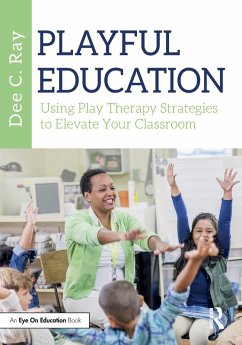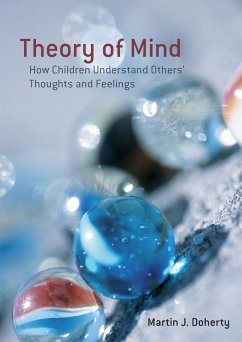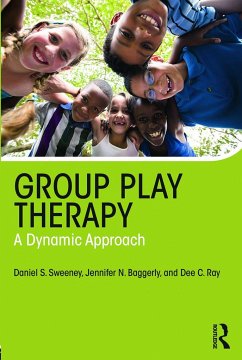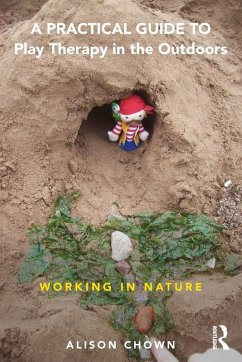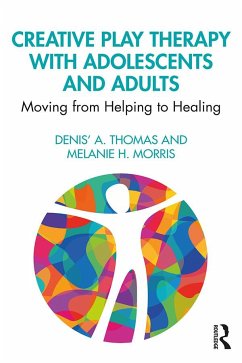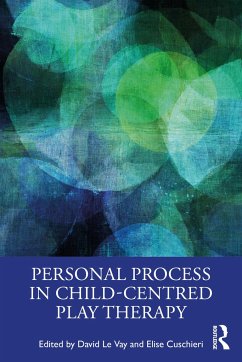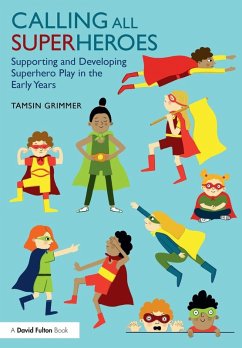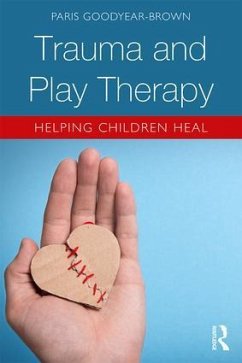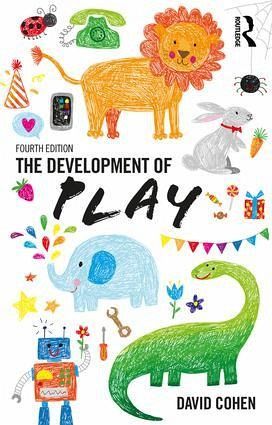
The Development Of Play
Versandkostenfrei!
Versandfertig in 6-10 Tagen
37,99 €
inkl. MwSt.
Weitere Ausgaben:

PAYBACK Punkte
19 °P sammeln!
Why is play so important in child development? Are children in today's society suffering from a lack of time for free play, with the emerging dominance of screen play? Can play therapy help to uncover, rescue and rehabilitate children living in abusive environments, or even in war-torn countries? Is play also important for adult development?Play is a learning experience and a crucial component to childhood development as it allows children to emulate the behaviours of those around them and to develop their social skills. In this engaging book, David Cohen examines how children play with object...
Why is play so important in child development? Are children in today's society suffering from a lack of time for free play, with the emerging dominance of screen play? Can play therapy help to uncover, rescue and rehabilitate children living in abusive environments, or even in war-torn countries? Is play also important for adult development?
Play is a learning experience and a crucial component to childhood development as it allows children to emulate the behaviours of those around them and to develop their social skills. In this engaging book, David Cohen examines how children play with objects, language, each other, and their parents to reveal how play enables children to learn how to move, think independently, speak and imagine. Cohen suggests that much of our formative experiences of play informs our future selves, and explores how play can help us to become better parents.
This new edition of The Development of Play offers a fascinating review of the importance of play in all our lives. It includes the latest research on the impact of digital technology, brain development, cultural differences in play and toys, and also looks at why parents sometimes choose different toys for girls and boys. The book also provides advice and guidance on how parents can play creatively and imaginatively with their children. It is essential reading for Early Years, health care and education professionals as well as undergraduate students in developmental psychology and education.
Play is a learning experience and a crucial component to childhood development as it allows children to emulate the behaviours of those around them and to develop their social skills. In this engaging book, David Cohen examines how children play with objects, language, each other, and their parents to reveal how play enables children to learn how to move, think independently, speak and imagine. Cohen suggests that much of our formative experiences of play informs our future selves, and explores how play can help us to become better parents.
This new edition of The Development of Play offers a fascinating review of the importance of play in all our lives. It includes the latest research on the impact of digital technology, brain development, cultural differences in play and toys, and also looks at why parents sometimes choose different toys for girls and boys. The book also provides advice and guidance on how parents can play creatively and imaginatively with their children. It is essential reading for Early Years, health care and education professionals as well as undergraduate students in developmental psychology and education.





